
When the provincial government tapped a team of academic researchers from around Québec to form an online gambling task force in 2010, they were asked to study the province’s current setup for igaming — a monopoly afforded to the provincial lottery, Loto-Québec — and to make recommendations for possible reform.
Four years later, the task force opined that when Loto-Québec launched its igaming platform, Espace Jeux, in December 2010, it may have been five years too late — the market was already saturated with operators, current players already had their favorite, and there were fewer new players entering the market. Espace Jeux features peer-to-peer online poker in Québec.
The task force also found that many online players in Québec didn’t know that sites other than Espace Jeux were unregulated and that the current monopoly given to Loto-Québec ran counter to a “digital culture” that embraces the idea of letting poker players play against others from anywhere in the world.
Their findings were presented in a 206-page report, Online Gambling: When Virtual Reality Catches Up With Us, delivered to the Québec government in 2014.
- Play one hand & get $150 in bonus play funds
- Top-quality mobile app
- Best online MTT schedule
Explaining the Popularity of Illegal Sites
The Swedes launched their site when the online poker market was booming, while Loto-Québec launched its own when the market was already saturated.
The academics wanted to better understand the socio-economic reasons why players in the province continued to play online poker at unregulated offshore sites rather than on Espace Jeux.
Previous research by Ingo Fiedler — a German economist who studied online poker markets in 2011 and made comparisons at the time between Espace Jeux and Svenska Spel, Sweden’s state-owned gaming company — was cited throughout the report. Researchers said the comparison was fair since both Loto-Québec and the province’s Ministry of Health and Social Services frequently compared both entities when Espace Jeux launched.
But the academics were critical that it took Loto-Québec nearly five years to launch Espace Jeux — Svenska Spel began operations in March 2006.
“In an emerging market, that’s an eternity,” the task force wrote in its report, according to a translation. “In other words, the Swedes launched their site when the online poker market was booming, while Loto-Québec launched its own when the market was already saturated.
“Consequently, according to Fiedler, it was more difficult for Espace Jeux to attract players than for Svenska Spel. In 2010, very few new players joined this already saturated market. As for former players, they probably already had a good opinion about the best sites and the best online networks.
“In a word, they already had their habits.”
Cash game traffic from that time backs up that statement. According to data from Pokerscout.com that the researchers included in their report, the seven-day average number of players on Svenska Spel was 600 to 700 between October 4 and October 17, 2013. By comparison, there were 90 to 175 players on Espace Jeux during the same time frame.
The maximum number of players on Svenska Spel ranged from 1,300 to 2,000 during the same time frame, while Espace Jeux saw a maximum of between 300 and 450 players.
Players were also avoiding Espace Jeux because of a higher rake, which Fiedler noted. The maximum rake on Svenska Spel was 2.5% at the time, but it ranged from 3% to 5% on Espace Jeux.
“In other words, to allow its customers to play poker, the Svenska Spel site charges less than Espace Jeux,” the researchers said. “This comparison illustrates that on Espace Jeux, poker is sold there at a higher price, which possibly contributes to the lack of appeal of the government corporation’s site for Québec players.”
Players Didn’t Know Private Sites Were Illegal; They Also Didn’t Care
It is likely that this similarity between sites with and without real money wagering contributes to creating the impression of the legality of certain sites. It can be difficult, if not impossible, for Québec players to know that real money gambling sites (.com) are considered illegal.
A survey from 2012 revealed that 22% of online gamblers in Québec did so exclusively on Espace Jeux, but the remaining 78% had played at least once on a site considered illegal. The task force said that translated to roughly 1.2% of the population playing on a site considered illegal in 2012 — down from 1.4% in 2009, one year before Espace Jeux launched.
The answers from online gamblers corroborated the survey results.
“One of the questions allowed respondents to spontaneously name the site(s) they visited most often to gamble online,” the task force reported. “The majority (78%) indicated that they most often visit online gambling sites such as PokerStars, Full Tilt, as well as about twenty other sites.”
The task force found more than half of Québecers (58%) were unaware that all igaming sites other than Espace Jeux were illegal in the province. But they said advertising for gaming sites that offered online bets that were considered legal but are still related to real money gambling sites, which are considered illegal.
“It is likely that this similarity between sites with and without real money wagering contributes to creating the impression of the legality of certain sites. It can be difficult, if not impossible, for Québec players to know that real money gambling sites (.com) are considered illegal,” the report said.
But the task force also suggested that Québec’s closed market could explain why Espace Jeux was having difficulty attracting players. One reason for illegal sites’ popularity is “borderless access to other players.”
That means Québec players were attracted to illegal sites for bigger prizes and wider competition.
“Ultimately, one of the reasons why Québecers continue to play on sites other than Loto-Québec is perhaps that these sites respond much better to the desires of internet users in general and the youngest [players] in particular,” the task force wrote.
- Or get up to $100 worth of rewards
- Available in many regulated markets
- Great MTT schedule including WSOP events
Québec Could Require Operators to Offer Online Protections
The industry-led Québec Online Gaming Coalition (QOGC) says regulators in Ontario used the report prepared for Québec as a playbook to build its own regulated iGaming market. Today, real money online poker in Ontario is a segregated market.
As the QOGC begins lobbying the current Québec government to consider adopting a market similar to Ontario’s, the report sent to a previous government in Québec has taken on renewed importance. QOGC wants the current government to consider the recommendations made nearly ten years earlier.
If the report’s recommendations are any indication, if Québec were to abandon the current Loto-Québec monopoly model for a system based on licensing private operators, Québec regulators may also insist that private operators adopt three online tools:
- A prominently positioned clock displaying the current time
- Hourly reminders displayed on-screen, informing players of the exact time spent playing and any sums won or lost
- A tracker that shows a historical record of the poker hands that a player has participated in, plus a listing of any deposits and withdrawals made by the player
The academics noted that Espace Jeux featured all three consumer protections at the time.
Researchers compared Espace Jeux to the five most popular poker sites at the time — 888poker, Full Tilt Poker, partypoker, PokerStars, and William Hill Poker. They found that all five sites differed in their levels of protection vis-à-vis Espace Jeux in terms of online tools and other metrics.
The researchers noted that all five private operators featured a clock and a tracker. But only partypoker and William Hill posted regular reminders.
Other metrics studied involved self-limit tools, such as deposit limits and spending limits.
Espace Jeux featured weekly or mandatory deposit limits — by comparison, all five private operators offered some form of daily, weekly, monthly, or optional deposit limits. And while Espace Jeux offered optional spending limits — either through a maximum set during a fixed period or through a daily, weekly, or monthly limit — only PokerStars and partypoker had spending limits, but only in certain situations.
Specifically, PokerStars allowed players to set a spending limit on table games and the amount that could be spent on buy-ins to tournaments. At partypoker, players had the option to set a time limit of between 10 and 180 minutes per session.
Espace Jeux was also noted for allowing players to set game breaks and to self-exclude. All five private operators did the same, except William Hill didn’t offer game breaks.
The report was led by Dr. Louise Nadeau, a psychology professor from the University of Montréal, with contributions from researchers from the Université de Sherbrooke and Concordia University.



